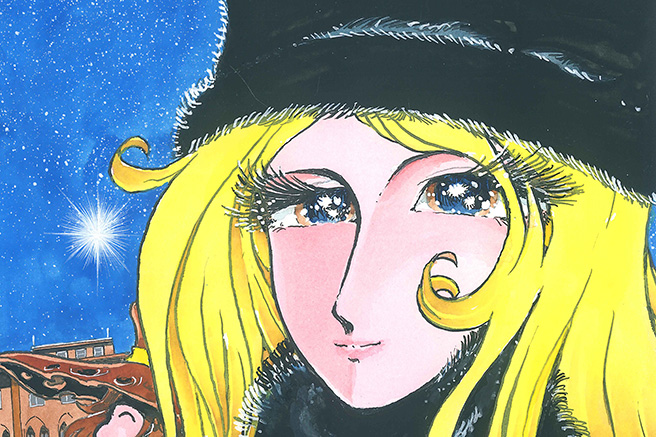
Leiji Matsumoto has embodied the deeply felt values of the 70s Japan, and turned them into stories and characters that have become part of the collective imagination, not only the Japanese one. Not even Go Nagai has managed to do the same, even if his "Mazinga" and his other "mecha" were invading the TV programs in the same period.
Matsumoto's long space sagas are above all moral stories: the ideal community boarding the “Space Battleship Yamato” (1975) redeems Japan from WWII thanks to its spirit of self-sacrifice. The apparently anarchist “Space Pirate Capitan Harlock” (1977) offers, on his spaceship Arcadia, a model for an ideal community in deep contrast with the hedonism and consumerism caused by the economic boom on Earth. Finally, the coming-of-age novel “Galaxy Express 999” (still 1977) tells the story of a young boy who, led by a woman that represents his mother and his first, unattainable lover, becomes a man and finds his place in the world. All this stories are bonded by an uncontainable fascination for the open space, which has no equal in western "space operas" such as "Star Wars" or "Star Trek".
The Lucca Comics & Games exhibition will have on display 40 originals that Leiji Mastumoto chose for his Italian fans (some of them have been made recently specifically on this occasion). This exhibition isn't only the right and proper homage to a great author, but also a way to reconnect to a pillar of our imagery and to comprehend a part of ourselves.
Where: Palazzo Ducale - Lucca
When: from 13 October to 4 November 2018
Vernissage: Saturday 13 October
Hours: from 13 to 29 October, Monday to Friday 3 p.m.-7 p.m., Saturday and Sunday 10 a.m.-1 p.m. and 3 p.m.-7 p.m. / from 30 October to 3 November, 9 a.m.-9 p.m. / 4 November, ore 9 a.m.-7 p.m.
Free entrance









